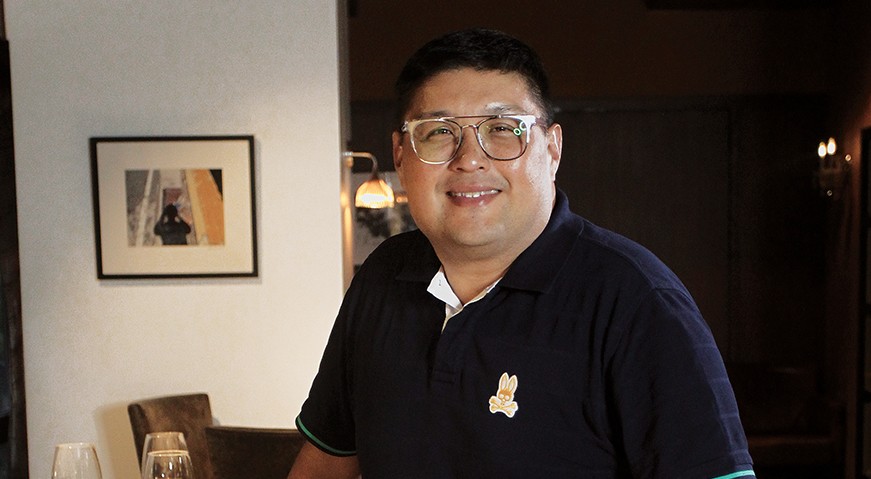A Gift of Life
Life in the fast lane almost took businessman Raffy David to the end of the road.
Raffy is part of a group who runs an auto service shop, online auto and motor parts store, a messengerial fleet, and one of the first Filipino-owned call centers. He is also with another group that owns three ramen restaurants.
An extremely busy life got Raffy into a series of illnesses. He had made the rounds of various hospitals for his diabetes in 1999 before he settled down in St. Luke’s Medical Center–Global City in mid-2000.
Raffy was led to St. Luke’s–Global City by his endocrinologist, Dr. Michael Villa, when he got tired of all the chaos and disorder in other hospitals.
“You walk into a lobby for the first time, it’s new. There’s artwork. Everything is in order,” he gushes. “’Wow!’ I said. ‘This is it!’”
Gout got him admitted to St. Luke’s–Global City sometime between 2010 and 2011. Then in 2012, while playing golf, Raffy suffered a heart attack and drove himself to St. Luke’s–Global City’s emergency room. After an angiogram, he had an emergency angioplasty, and being in a hospital that has earned his confidence, he recovered quickly and was back to the golf course after only a month.
Big battle looms
However, diligent monitoring of Raffy’s overall health and subsequent tests showed he needed a kidney transplant. The call came a year before he went into dialysis, making him hope that a complete lifestyle change would reverse the illness, but it didn’t.
In mid-2014, while in Palawan, Raffy had severe diarrhea that did his kidneys in. By year end, he was already on dialysis.
In preparing patients for kidney transplant, St. Luke’s evaluates their health condition totally, involving all medical disciplines—cardiovascular, gastrointestinal, endocrine, and pulmonary health, etc.—as well as infections and nutritional aspects, according to Dr. Angel Amante, head of the Center for Organ Transplantation.
This approach contributes significantly to the 95% survival rate of the transplant patients of
St. Luke’s, which is at par with the best in Europe and North America.
Moreover, St. Luke’s rejection risk is lower than 5%, far below the national average of 10% to 15%.
“Most importantly, we monitor our patients closely post-transplant. We do regular check-ups,” says Dr. Amante of the hospital’s treatment protocol, high-tech immuno-pathologic laboratory and other modern facilities.
Donor quality
St. Luke’s ensures that organ donation goes through the stringent process mandated by the Department of Health to weed out those who go into it for commerce.
“Once a candidate and donor are determined fit for the procedure, they go through the process,” Dr. Amante points out.
About 90% of the organ donations at St. Luke’s come from living donors, enhancing the procedures’ success rate.
Miracles do happen
Months into dialysis, Raffy knew he had to find a donor fast. There were willing donors—including his brother-in-law who was not a match, another who was emotionally unfit, and yet another who had a weak heart.
None could fit the bill.
Yet, when hope neared its end, one of his wife’s cousins in Nueva Ecija offered the donation. The process went on stream and the surgeon was Dr. Amante himself.
The transplant was a success, enabling Raffy to reevaluate his life and priorities. He has learned to say no to certain activities.
“I drink a minimum of three liters of water every day. I’ve given up soft drinks. I’ve quit alcohol,” proudly and victoriously Raffy says of the new gift of life he has just received.





